MercoPress. South Atlantic News Agency
Tag: GDP
-
Thursday, September 29th 2011 - 16:31 UTC
US jobs and GDP stats still poor, but not as bad as previously estimated

US new unemployment benefit claims fell to a five-month low last week, while the economy grew slightly more than previously reported in the second quarter, according to data from the Labour Department.
-
Friday, September 2nd 2011 - 22:26 UTC
Argentina’s industry praises CFK calls for ‘national unity’ to achieve development
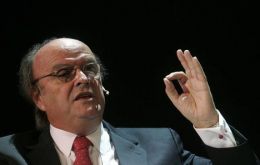
Argentina’s powerful industries union, UIA, called on Friday for dialogue and ‘national unit’ in order ‘to bring together a project of development’, and forecasted that if this is achieved the country could triple its GDP in the next twelve years.
-
Wednesday, May 11th 2011 - 08:00 UTC
Chile will become first develop country in Latam, says world’s richest man
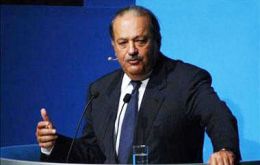
Chile will become the first developed country in Latin America, predicted Mexican communications mogul Carlos Slim, the richest man in the world, in an economic presentation given in Honduras last Thursday.
-
Wednesday, May 4th 2011 - 23:12 UTC
Argentina’s economic performance ‘below’ South America’s average

The Argentine ‘development model’ had had its successes but it belongs to the average group of most South American countries that benefited by the explosive advance of commodity prices and since 2007 has fallen to the bottom half of performers in the region according to former Economy minister Martin Lousteau.
-
Thursday, April 14th 2011 - 23:50 UTC
Mercosur outperformed in 2008/09 recession and during 2010 recovery
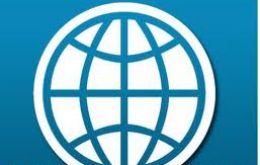
Latin America and the Caribbean have weathered the 2008-2009 recession much better than it had previous downturns. However less well-known is that the region, particularly Mercosur members, also decisively outperformed many other regions during the same period with a decline in growth smaller than that of the middle-income country average and with a rebound that was swifter and stronger.
-
Monday, April 11th 2011 - 20:34 UTC
Crime and violence cost Central American countries 8% of GDP, says World Bank

Growing crime and violence in Central America not only have an immediate human and social toll but they also pose a tremendous threat to development potential in the region since it is estimated that these sources of instability cost 8% of GDP, once health, institutional, private security, and material expenses are accounted for.
-
Wednesday, March 23rd 2011 - 19:47 UTC
Argentina forecasted to expand 6.8% in electoral year with 25% inflation

Goldman Sachs raised its forecast for Argentina’s economic growth in 2011 after the economy expanded last year at the fastest pace since 2005. Alberto Ramos Goldman Sachs economist raised the GDP expansion estimate to 6.8% from a previous 5.6%, according to an e-mail statement.
-
Saturday, March 19th 2011 - 07:13 UTC
Argentine economy expanded 9.2% in 2010 and begins 2011 with a”6% floor”
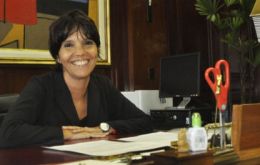
Argentina’s economy grew 9.2% during the last quarter of 2010 compared to the same period in 2009, according to an official report from the government’s statistics office, Indec. The country’s GDP also increased 2.5% compared to the previous trimester and totalling 9.2% growth during 2010.
-
Wednesday, March 9th 2011 - 22:52 UTC
“Argentina has not learnt the 2001 lesson, nor have many investors the 2008 crisis”
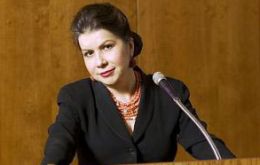
“There is no evidence that Argentina has learnt the lesson from the 2001 crisis”, said Carmen Reinhart one of the most influential US economists and an expert in Latin America, who has worked for the IMF, in Wall Street and teaches at the University of Maryland.
-
Saturday, February 19th 2011 - 06:08 UTC
Argentine economy expanded 9.1% in 2010, announces Cristina Kirchner

President Cristina Fernandez de Kirchner announced Friday that Argentina’s economy is 2010 expanded 9.1% and unemployment in the fourth quarter experienced a further drop and now stands at a record low of 7.3%.
